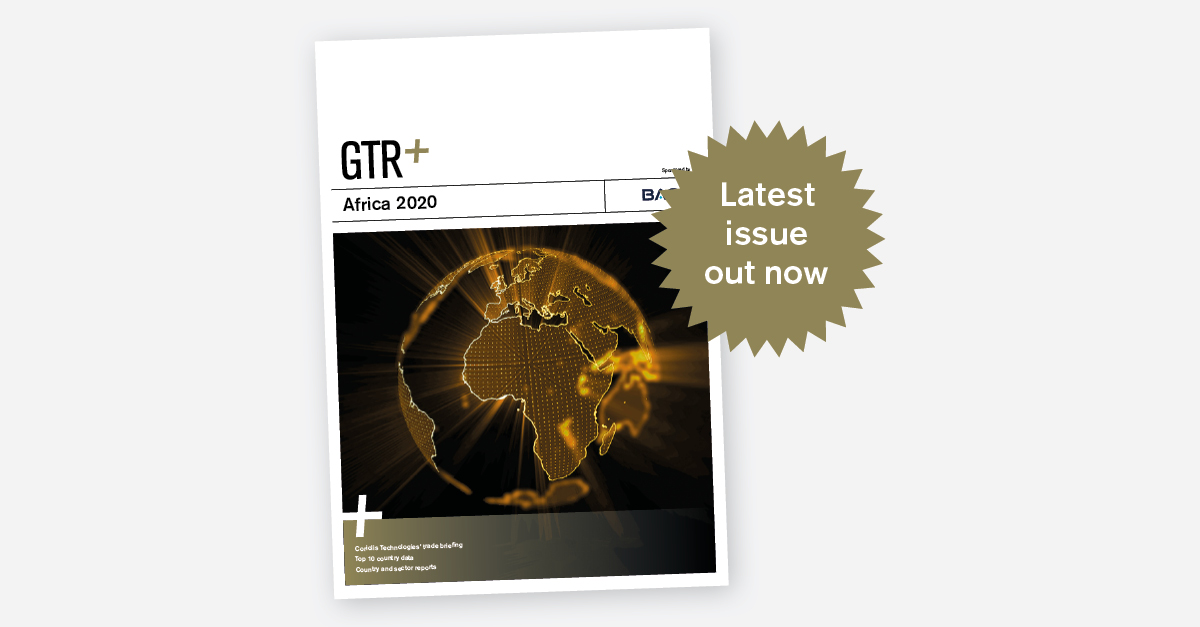As this publication goes to print in late July the outbreak of Covid-19 is accelerating across Africa, forcing governments to balance trying to keep their people safe from the virus while also ensuring that they can still make a living.
It’s no surprise that most of the coverage in our annual GTR+ Africa magazine is focused on the impact of the pandemic on the continent’s trade and ability to access trade finance, from the effect on South Africa’s metals and mining industries, where there’s a growing demand for digitisation efforts to increase efficiency, to the damage caused to East Africa’s burgeoning agri industry, which has also been buffeted by locusts and floods.
The post-Covid-19 economic outlook for the continent appears bleak, no matter which way you look at it. According to the World Bank, Sub-Saharan Africa has entered its first recession in 25 years, with growth forecast between -2.1% and -5.1% in 2020, from 2.4% in 2019.
This issue’s Trade Briefing from Coriolis Technologies paints a similar picture with regards to projections for trade. Economically, the region was under pressure even before Covid-19, with its trade very highly correlated with the price of oil, and the value of external trade with many countries falling back over the last few years. African nations are likely to emerge from the crisis with external trade even lower than beforehand, while intra-regional trade, at just 18% of all exports, is also set to suffer if there is greater competition within the region for resources.
Even though Africa’s exports will be severely affected by the Covid-19 crisis during the course of 2020, the data suggests they are projected to recover, albeit gradually, through the next five years.
They will, nevertheless, remain vulnerable.
In the recent past, the biggest talking point in African trade has undoubtedly been the African Continental Free Trade Area (AfCFTA), the world’s largest agreement of its kind since the formation of the World Trade Organization (WTO), which has the potential to drive significant change across the continent.
It is this multilateralism that many now point to as a means of ensuring Africa’s future export-led growth. “In the end, it will be the resilience of the region and its capacity to regenerate through intra-regional growth that will determine whether or not Africa will cope and recover,” reads our Trade Briefing.
Elsewhere in this publication, we feature a rousing exchange with Wamkele Mene, the first secretary general of the AfCFTA secretariat, who took up his post in March 2020.
“It is not hyperbole to say that from an economic standpoint, this [the AfCFTA] is the biggest thing that has come out of Africa since the end of colonialism,” he tells GTR in our exclusive interview. “Even with Covid-19, we are going to implement this agreement.”
The phase-in of the initiative is now set for Q1 2021, having been postponed due to the outbreak of the virus. Many believe that this is when the real work will begin.








